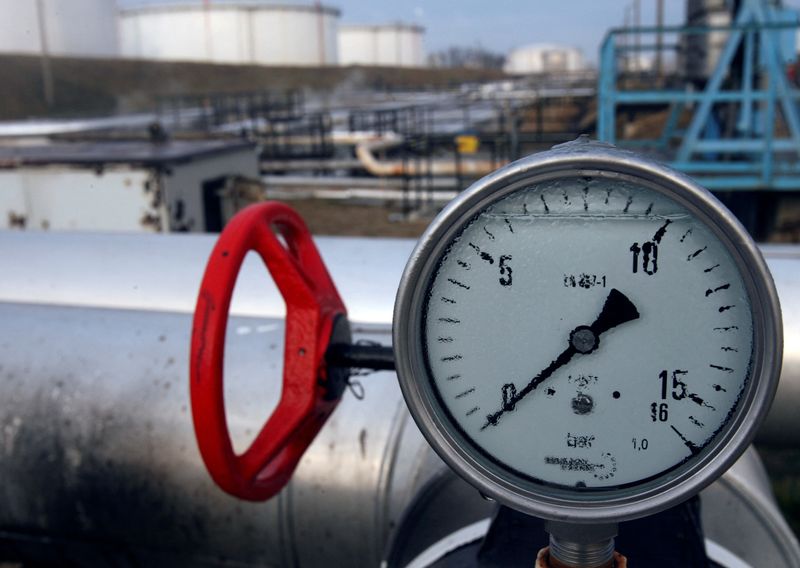By Scott DiSavino
NEW YORK (Reuters) -Oil slumped about 4% on Monday to its lowest in two weeks on growing worries about the global energy demand outlook due to prolonged COVID-19 lockdowns in Shanghai and potential increases in U.S. interest rates.
"The prospect of slower economic growth this year amid U.S. interest-rate hikes ... has already led to a downward revision of oil-demand forecasts," analysts at the Eurasia Group consultancy said, noting "The longer the Ukraine war and the China lockdowns persist, the higher the risk that demand growth will be even weaker."
Shanghai's COVID-19 lockdown misery dragged into a fourth week, as orders for mass testing in Beijing's biggest district sparked fears that the Chinese capital could be destined for a similar fate.
China is the world's biggest oil importer.
Brent futures fell $4.33, or 4.1%, to settle at $102.32 a barrel, while U.S. West Texas Intermediate (WTI) crude fell $3.53, or 3.5%, to settle at $98.54.
Both benchmarks closed at their lowest since April 11 after losing nearly 5% last week. Since soaring to their highest since 2008 in early March, prices have collapsed by about 25%.
That retreat prompted U.S. speculators to cut their net long futures and options positions last week to the lowest since April 2020.
Open interest in WTI futures on the New York Mercantile Exchange last week to its lowest since July 2016, while daily futures volume dropped to its lowest so far this year.
Also pressuring oil, the U.S. dollar rose to a two-year high against a basket of other currencies on the likelihood of U.S. interest rate hikes. A strong dollar makes oil more expensive for other currency holders. [USD/]
Oil gained support earlier in the year from tight supplies after Russia's Feb. 24 invasion of Ukraine caused customers to avoid Russian oil due to Western sanctions. The market could tighten further if the European Union (EU) bans Russian crude.
The EU is preparing "smart sanctions" against Russian oil imports, according to a report in The Times of London that cited the European Commission's executive vice president, Valdis Dombrovskis.
"Although the EU Commission is working on the sixth package of sanctions against Russia, an embargo on oil exports from Russia seems unlikely for now," said Nikoline Bromander, senior analyst at Rystad Energy.
U.S. gasoline futures, meanwhile, slid less than crude, putting the gasoline crack spread - a measure of refining profit margins - at its highest since hitting a record in April 2020 when WTI settled in negative territory.
Russia's NK Rosneft PAO failed to sell oil in a jumbo tender after demanding prepayment in roubles, meaning the country's top oil company must find ways to divert more crude to Asian buyers via private deals.

In the United States, which will reopen its embassy in Ukraine soon, officials said domestic oil and gas production is rising and will continue to rise to make up for the 1 million to 1.5 million barrels of oil per day that has been pulled off the market after Russia's invasion of Ukraine.
France's TotalEnergies SE has provisionally chartered a tanker to load Abu Dhabi crude in early May for Europe, the first such shipment in two years.
